Digital Marketing Plan Samples
-
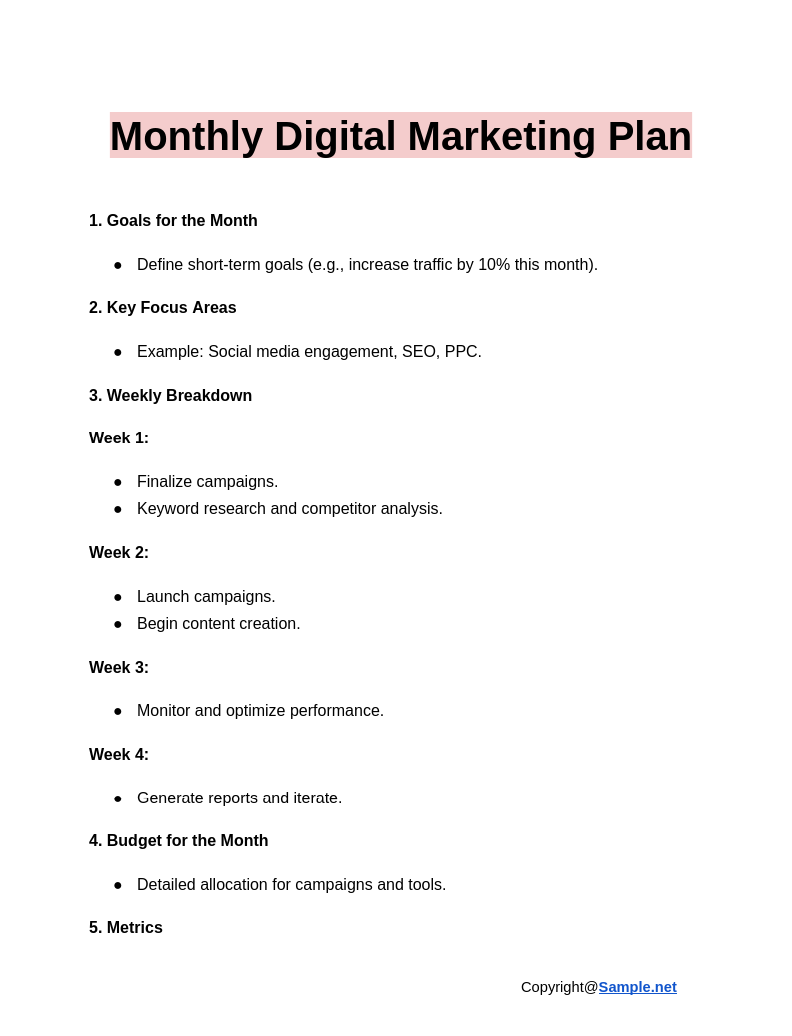
Monthly Digital Marketing Plan
download now -
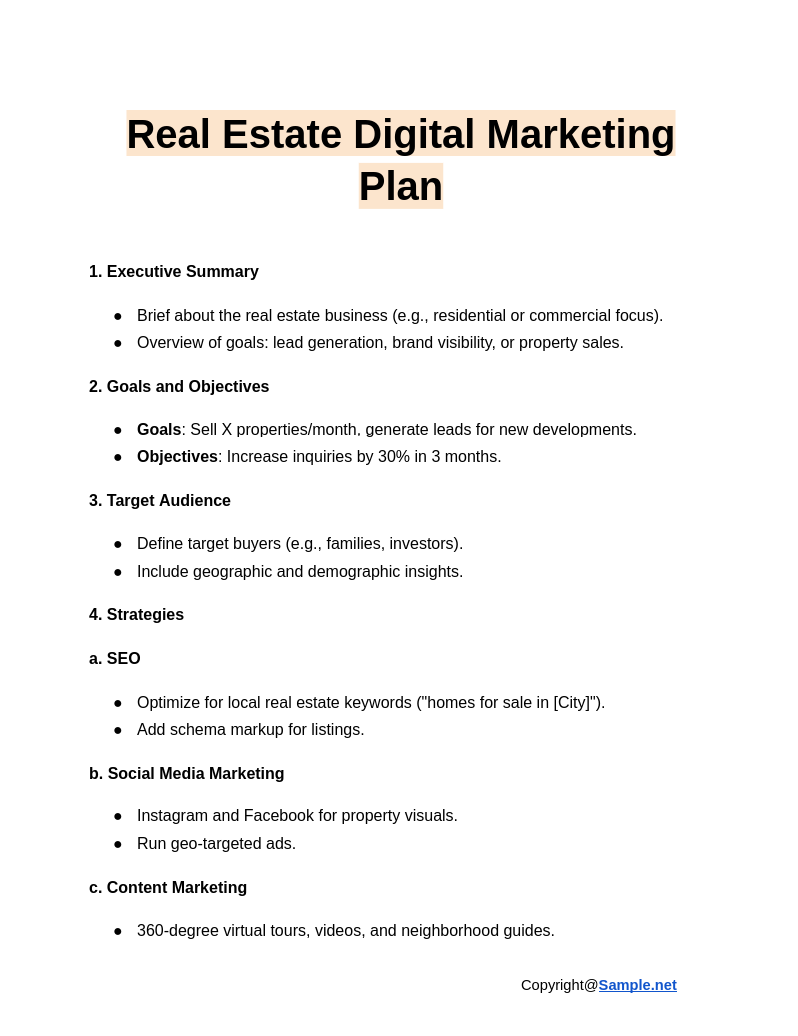
Real Estate Digital Marketing Plan
download now -
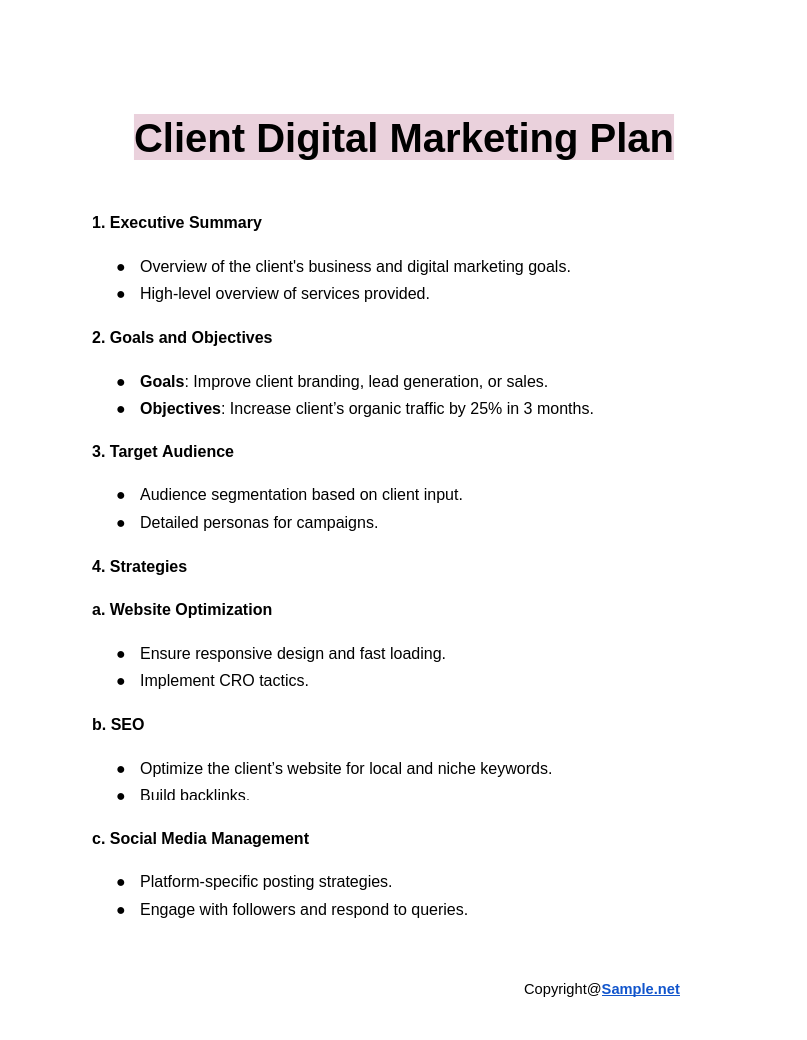
Client Digital Marketing Plan
download now -
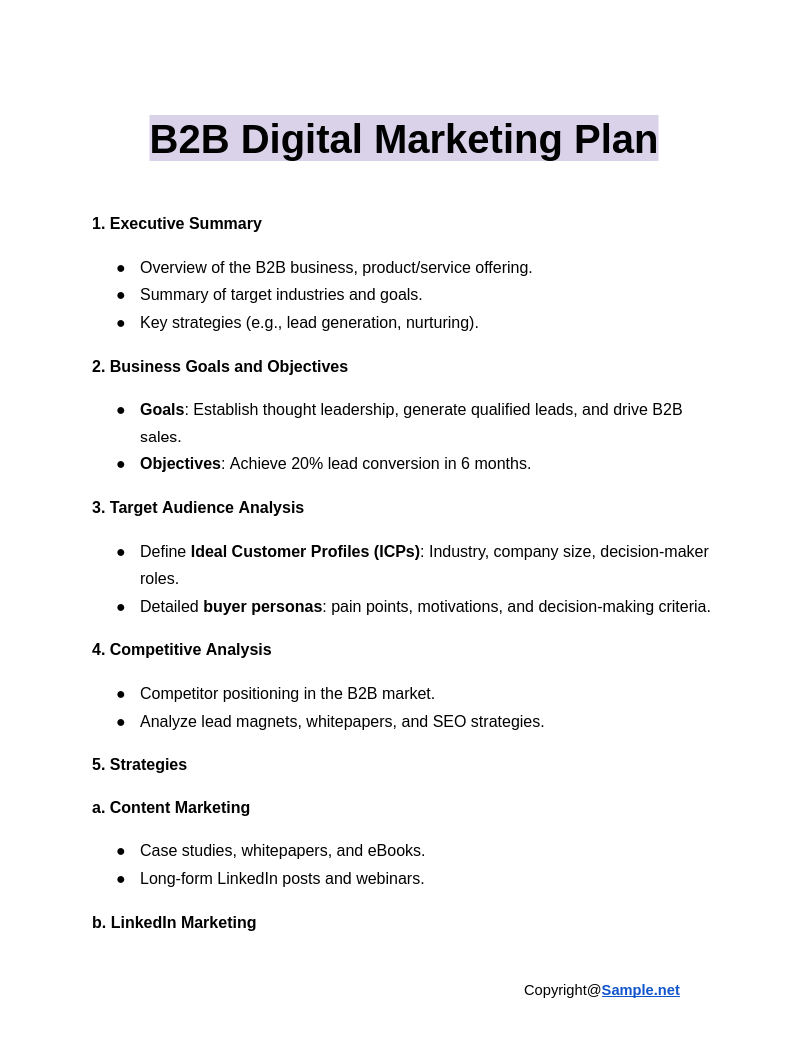
B2B Digital Marketing Plan
download now -
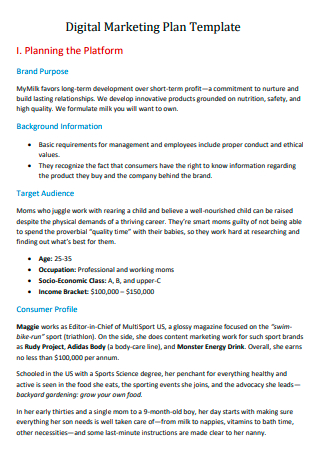
Digital Marketing Plan Template
download now -
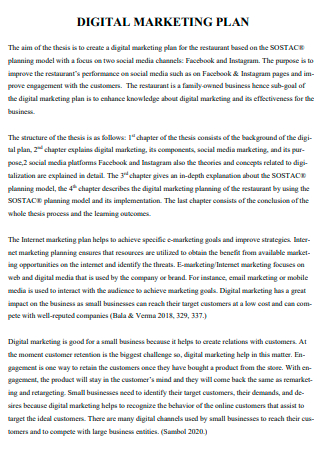
Basic Digital Marketing Plan
download now -
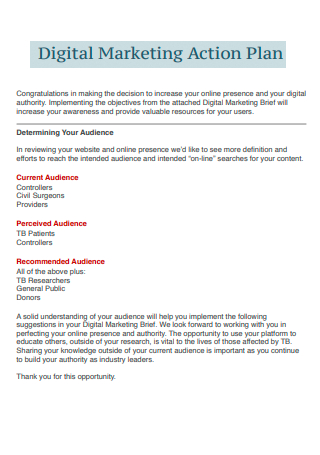
Digital Marketing Action Plan
download now -
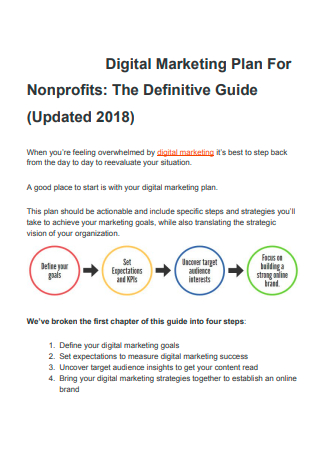
Digital Marketing Plan For Non-Profits
download now -
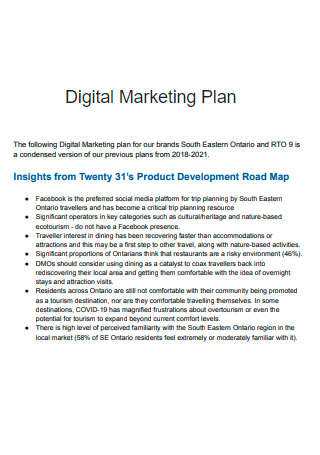
Digital Marketing Plan Example
download now -
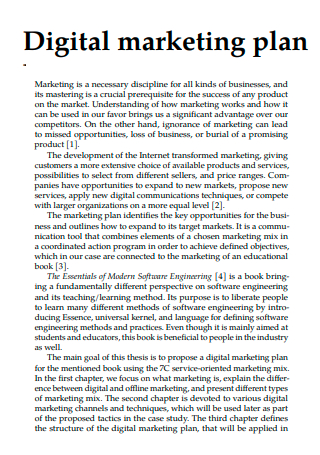
Printable Digital Marketing Plan
download now -
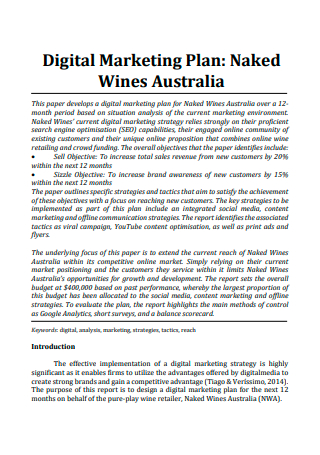
Simple Digital Marketing Plan
download now -
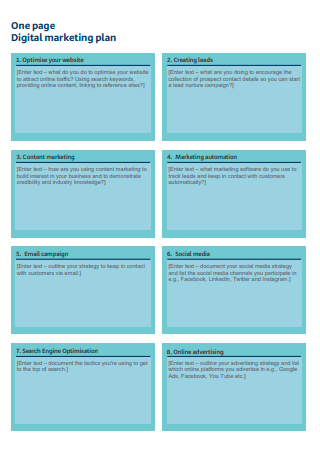
One Page Digital Marketing Plan
download now -
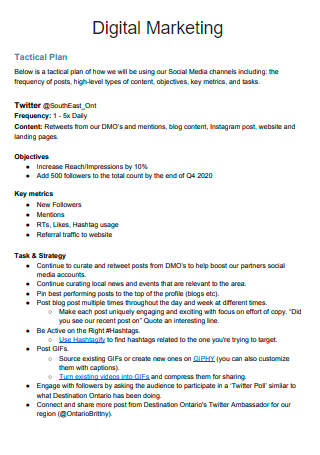
Digital Marketing Tactical Plan
download now -
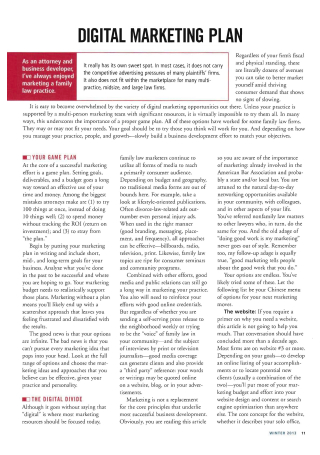
Standard Digital Marketing Plan
download now -

Agricultural Business Digital Marketing Plan Outline
download now -
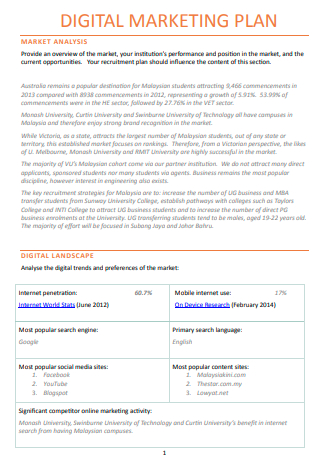
Formal Digital Marketing Plan
download now -
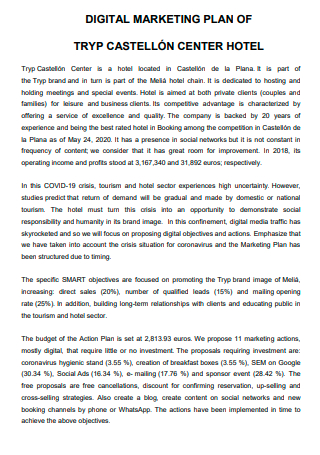
Digital Marketing Plan of Hotel
download now -
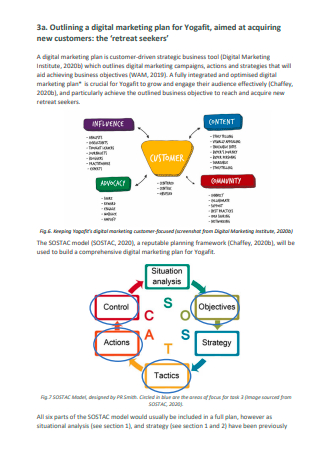
Outlining Digital Marketing Plan
download now -
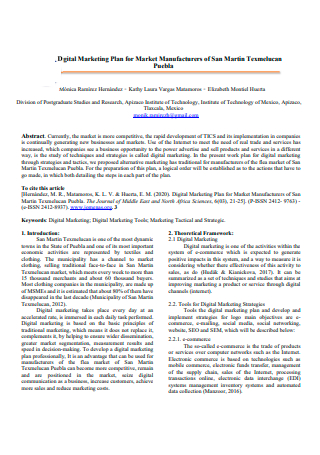
Digital Marketing Plan For Market Manufacturers
download now -
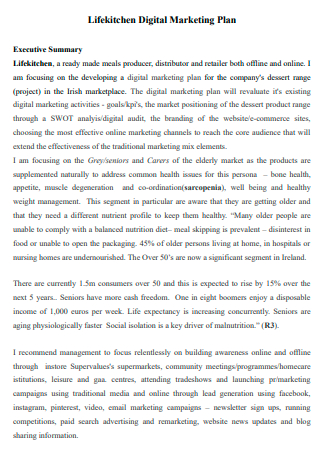
Life Kitchen Digital Marketing Plan
download now -
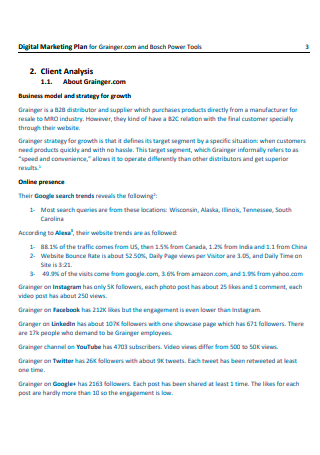
Digital Marketing Plan Format
download now -
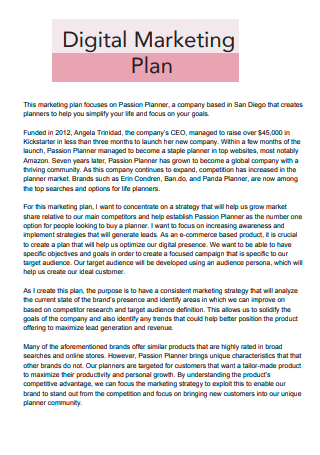
Draft Digital Marketing Plan
download now -
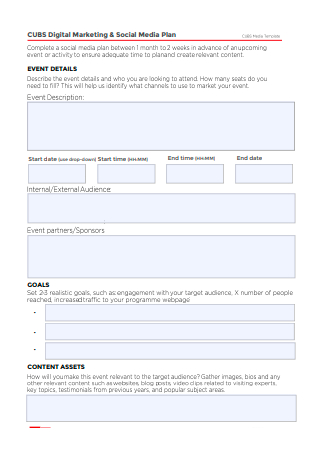
Digital Marketing and Social Media Plan
download now -

Sample Digital Marketing Plan
download now -
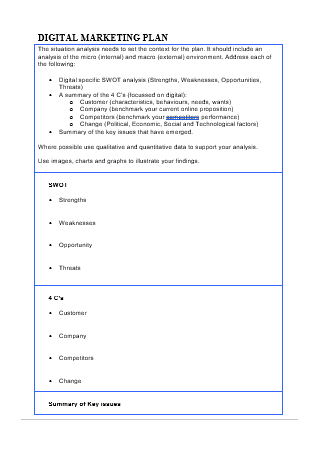
Digital Marketing Plan in DOC
download now
FREE Digital Marketing Plan s to Download
Digital Marketing Plan Format
Digital Marketing Plan Samples
a Digital Marketing Plan?
Components of Digital Marketing Plan
How To Develop a Digital Marketing Plan
FAQs
What is the YouTube Marketing?
Is Digital Marketing a lucrative career path?
What is the Instagram marketing?
How do I align a digital marketing plan with business goals?
What are the challenges of creating a digital marketing plan?
What is the role of content in a digital marketing plan?
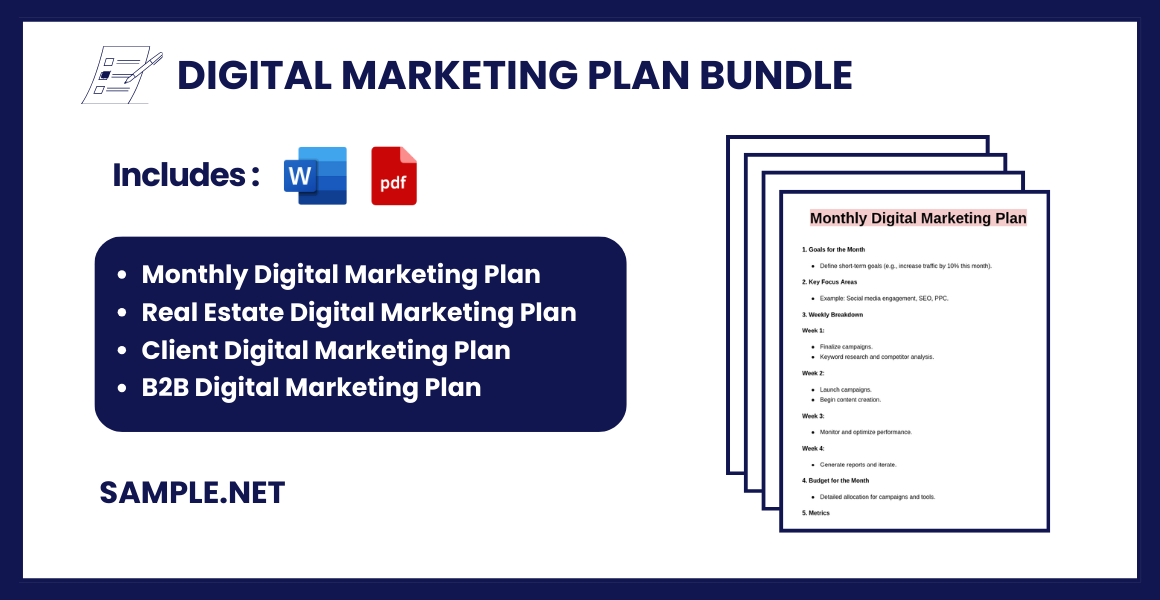
Download Digital Marketing Plan
Digital Marketing Plan Format
1. Executive Summary
- Brief overview of the business or project.
- Key goals of the digital marketing plan.
- Summary of strategies and expected outcomes.
2. Business Goals and Objectives
- Business Goals: High-level goals (e.g., increase revenue, expand market share).
- Marketing Objectives: Specific, measurable, achievable, relevant, and time-bound (SMART) goals (e.g., grow website traffic by 30% in 6 months).
3. Target Audience Analysis
- Buyer Personas: Detailed profiles of ideal customers (demographics, psychographics, behavior, pain points).
- Customer Journey Mapping: Key stages (Awareness, Consideration, Decision, Retention).
4. Competitive Analysis
- Identify key competitors.
- Analyze their digital marketing strategies (content, SEO, PPC, social media).
- Highlight competitive advantages and gaps.
5. Market Research and Insights
- Industry trends and forecasts.
- Digital behavior of the target audience.
- Insights from tools like Google Analytics, SEMrush, or industry reports.
6. Digital Marketing Strategies
a. Content Marketing
- Blog posts, videos, infographics, eBooks, case studies.
- Editorial calendar.
b. SEO (Search Engine Optimization)
- Keyword research.
- On-page, off-page, and technical SEO strategies.
- Backlink building plan.
c. Social Media Marketing
- Platforms to focus on (e.g., Facebook, Instagram, LinkedIn, TikTok).
- Content types and posting frequency.
- Paid social campaigns.
d. Email Marketing
- Segmentation and personalization strategies.
- Drip campaigns or newsletters.
e. PPC (Pay-Per-Click Advertising)
- Platforms: Google Ads, Bing Ads, or social media.
- Budget allocation and targeting.
- Ad copy and creatives.
f. Influencer Marketing
- Types of influencers (macro, micro, or nano).
- Collaboration plans.
g. Affiliate Marketing
- Recruitment of affiliates.
- Incentive structures.
h. Conversion Rate Optimization (CRO)
- Landing page design and A/B testing.
- Call-to-action (CTA) strategies.
7. Budget Allocation
- Detailed budget breakdown by channel (SEO, PPC, social media, etc.).
- Contingency funds.
8. Implementation Timeline
- Roadmap for key activities (content creation, campaign launches).
- Gantt chart or calendar.
9. Metrics and KPIs
- Define success metrics for each strategy:
- SEO: Organic traffic, rankings, backlinks.
- Social Media: Engagement rate, followers, reach.
- PPC: Cost per click (CPC), return on ad spend (ROAS).
- Email: Open rates, click-through rates (CTR).
- Conversion: Conversion rate, cost per acquisition (CPA).
10. Tools and Technology
- Tools for analytics (Google Analytics, Adobe Analytics).
- Tools for automation (HubSpot, Mailchimp).
- Tools for SEO (Ahrefs, SEMrush).
11. Risk Management
- Potential risks (e.g., overspending, low engagement).
- Contingency plans.
12. Evaluation and Reporting
- Frequency of reporting (weekly, monthly, quarterly).
- Format of reports (dashboards, presentations).
- Iteration based on performance data.
Appendices (if needed)
- Detailed research data.
- Personas or journey maps.
- Creative mockups.
What is a Digital Marketing Plan?
A digital marketing plan is a comprehensive document outlining strategies and tactics to achieve marketing objectives using digital channels. It encompasses identifying target audiences, setting clear goals, determining key performance indicators (KPIs), and utilizing tools like social media, SEO, email marketing, and paid ads to drive engagement. This plan ensures consistent messaging and optimized campaigns that align with a company’s overall vision and goals. You can also see more on Outstanding Online Marketing Strategies.
Components of Digital Marketing Plan
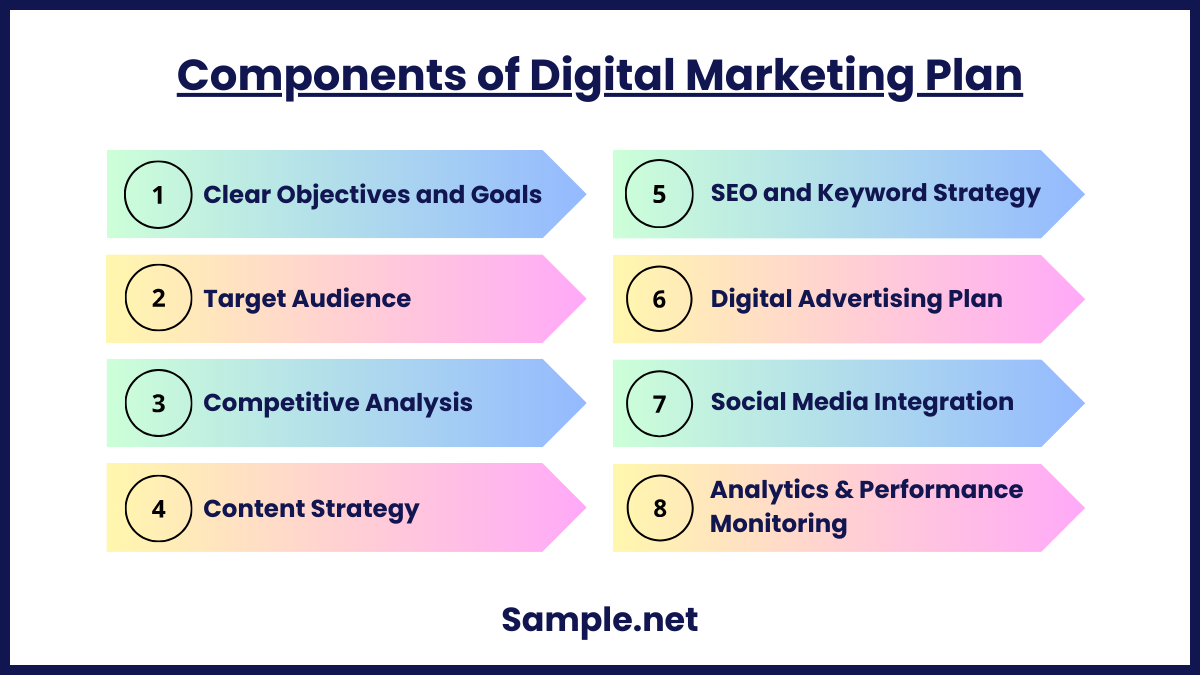
Today, every marketing strategy includes a digital component. This is because marketing objectives are typically focused on increasing a business’s ability to reach new customers, retain existing customers, and increase sales. And your customers are online today. Because you can communicate with your customers via their preferred channels, digital marketing has become one of the most effective methods of communication. However, the breadth of digital marketing options can make it challenging to determine where to focus. Organizations that want to differentiate themselves in the market understand how critical it is to reach and engage potential customers effectively. This requires finding novel ways to connect with the right people at the right time and delivering a compelling message that assists them in determining whether a product meets their needs. With this in mind, the following are some of its components:
1. Clear Objectives and Goals
Defining measurable and specific objectives is the foundation of any digital marketing plan. These objectives should align with overall business goals, such as increasing website traffic, driving more conversions, or enhancing brand awareness. Having clear goals ensures focus and provides benchmarks for measuring success.
2. Target Audience
Understanding your target audience is crucial for creating effective campaigns. This involves identifying their demographics, preferences, behaviors, and pain points. Knowing your audience helps tailor messages and strategies that resonate with them, leading to higher engagement and conversion rates.
3. Competitive Analysis
Analyzing competitors’ digital strategies can provide valuable insights. Understanding their strengths, weaknesses, and tactics allows you to identify gaps and opportunities in the market. This knowledge helps in positioning your brand uniquely and crafting campaigns that stand out. You can also see more on Marketing Plan.
4. Content Strategy
A robust content strategy is key to attracting and retaining customers. Creating high-quality, relevant content, such as blogs, videos, and social media posts, establishes authority and builds trust. The strategy should align with customer needs and include a content calendar for consistency.
5. SEO and Keyword Strategy
Search engine optimization (SEO) improves your website’s visibility in search engines. A well-researched keyword strategy ensures your content ranks higher for terms your target audience searches for. Combining on-page and off-page SEO practices boosts organic traffic and brand authority.
6. Digital Advertising Plan
Paid advertising, such as Google Ads, social media ads, and retargeting campaigns, amplifies your reach. The plan should include a clear budget, target platforms, and performance metrics. Optimizing ad campaigns ensures maximum ROI and effective audience targeting. You can also see more on E-commerce Marketing Plan.
7. Social Media Integration
Social media platforms are essential for engaging with your audience and promoting your brand. An integrated strategy includes organic posts, paid campaigns, and audience interaction. Leveraging analytics from these platforms helps refine your approach and increase engagement.
8. Analytics and Performance Monitoring
Measuring and analyzing campaign performance is vital for ongoing improvement. Tools like Google Analytics and social media insights track metrics such as website traffic, conversion rates, and ROI. Regular monitoring helps identify what works and informs future strategies. You can also sse more on What is Digital Marketing?.
How To Develop a Digital Marketing Plan
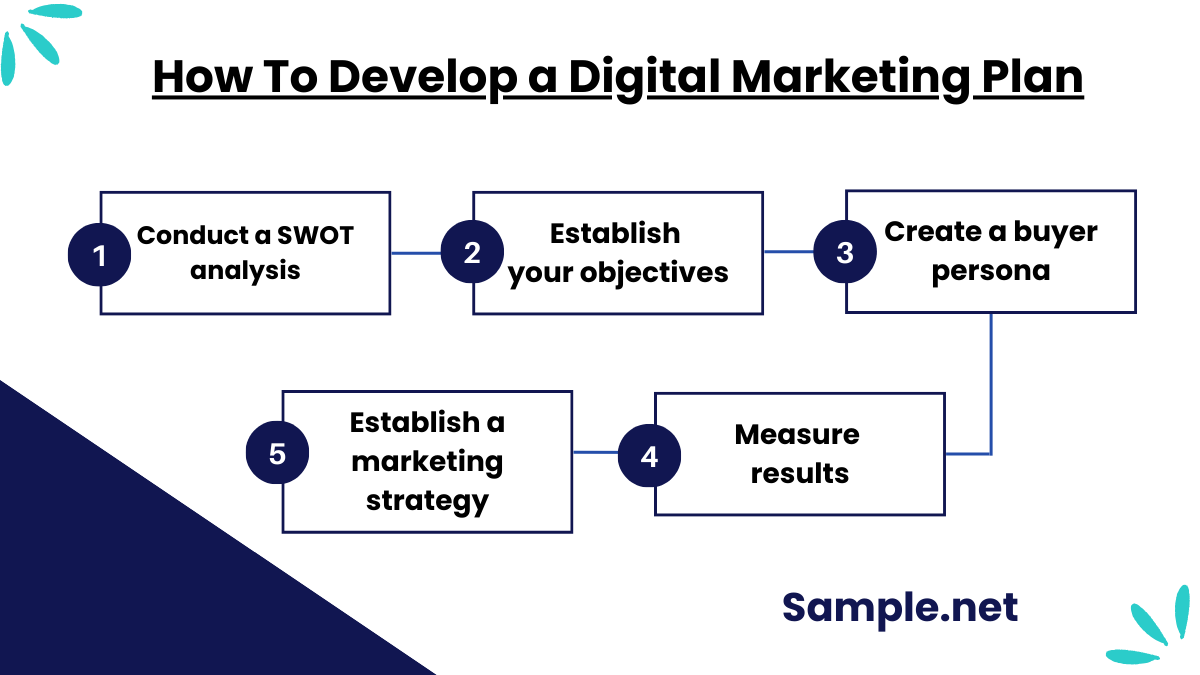
To create a digital marketing plan, you must first grasp two concepts. To begin, if you want your project to succeed, you must rely on appropriate technologies and skilled personnel to operate them. Then, it’s worth noting that there is no one-size-fits-all approach to developing your plan. Each business has unique characteristics that must be considered during the strategic planning process. As a result, everything begins with a thorough analysis of your business. How is this accomplished? Take a look at the first of the five topics listed below.
1. Conduct a SWOT analysis.
SWOT analysis is a strategic planning tool. Its purpose is to map all factors affecting the business, from the external — such as political and economic fluctuations — to the internal — such as employee productivity. With this information, a comprehensive diagnosis of the company’s situation can be generated, highlighting opportunities and threats. Utilizing this type of knowledge is critical for developing an effective Digital Marketing strategy. The analysis is structured around four components, the initials of which form the acronym SWOT: strengths, weaknesses, opportunities, and threats. The objective is to analyze each of them and investigate the situation in the most effective manner possible.
2. Establish your objectives
After conducting a SWOT analysis, you will determine which areas of your business require improvement. This way, you can establish a hierarchy of priorities and identify the most critical objectives. How about an illustration? Know that the internal analysis revealed that your brand is excellent at attracting leads but cannot convert them. Immediately, increasing your conversion rate should be a primary objective. External analysis, which looks for threats and opportunities, can have a similar effect. You may identify an opportunity for your brand to connect with its audience on a social network that it has not yet explored. If this is the case, you should focus your efforts on growing your digital presence and developing an effective strategy for that platform. Along with goals, it is critical to define the Key Performance Indicators (KPIs) used to track the strategy’s progress. They will play a crucial role in future decision-making.
3. Create a buyer persona
Creating a buyer persona is a critical step in any Digital Marketing strategy. The persona is a semi-fictional character that embodies the characteristics of your ideal customer. To create it, you’ll need to look beyond your target audience’s demographic data. The persona should include additional specific and intuitive details such as the first name, hobbies, needs, pains, and motivations. The objective is to expedite the development of strategies that may affect your prospective clients. When you view them as a persona, it becomes easier to investigate their characteristics and ultimately convert them. You can also see more on B2B Marketing Plan.
4. Establish a marketing strategy
After researching your company, defining your objectives, and structuring your persona, the details of your marketing strategy can be sculpted. This process begins with channel selection for brand promotion and customer communication. Note that these details are directly related to your predefined objectives and the persona’s observed characteristics. If you’re attempting to reach a youthful demographic, for example, you should pay attention to the social media outlets that your target audience uses. The objectives should also influence the methodology you use. If the aim is to promote a product and maximize reach, investing in paid advertising may be the answer. Your digital marketing strategy must be consistent across all channels in all cases. Your brand must have a distinct identity and adhere to its missions and values. It is the only way to establish your business’s authority.
5. Measure results
Even if you achieve outstanding results in a short time, never assume your work is complete. Digital marketing is defined by rapidly changing trends, affecting even the most successful strategies. As a result, ask for feedback from your employees and customers to elicit varying perspectives on the strategy’s impact. Additionally, collect data and create reports to aid in your situation analysis. Remember how we discussed earlier the importance of defining your key performance indicators? That is correct; they are critical for monitoring and ensuring the stability of your strategy. On the other hand, if you ignore these variations, you risk wasting all of your previous efforts. You can also see more on Service Marketing Plan.
FAQs
What is the YouTube Marketing?
YouTube marketing is a strategy that entails creating videos and uploading them to YouTube to gain exposure for a brand or product. It enables businesses to increase traffic, expand their customer base, and reach new audiences.
Is Digital Marketing a lucrative career path?
Digital marketing is best suited for individuals who possess a blend of creative and analytical abilities. It’s advantageous to be numerate – digital marketing requires a great deal of data analysis, so being comfortable with statistics will benefit you.
What is the Instagram marketing?
Instagram marketing is a subset of social media marketing that entails promoting a brand on the photo-sharing platform Instagram. This social media platform enables businesses to connect with a massive audience, raise brand awareness, and increase sales.
How do I align a digital marketing plan with business goals?
Aligning your digital marketing plan with business goals requires identifying how online efforts contribute to overall objectives. For example, if the goal is to increase sales, focus on strategies like PPC advertising, retargeting campaigns, and conversion rate optimization. Regularly review progress and adjust tactics to stay aligned.
What are the challenges of creating a digital marketing plan?
Challenges include identifying the right target audience, choosing effective platforms, staying updated with trends, and allocating resources wisely. Overcoming these requires thorough research, agile strategies, and leveraging data-driven insights. You can also see more on Marketing Project Plan.
What is the role of content in a digital marketing plan?
Content is the backbone of a digital marketing plan. High-quality, engaging, and relevant content attracts, informs, and converts audiences. It drives organic traffic, builds trust, and supports SEO efforts, ensuring sustained online growth.
